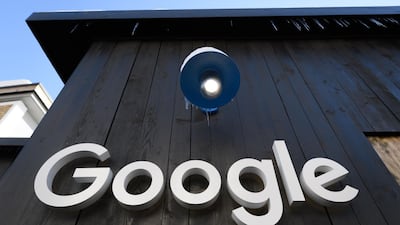Google parent Alphabet reported a 60 per cent jump in third-quarter net income on the back of higher advertisement revenue as more people spend time online due to the coronavirus pandemic related restrictions.
Net income for the three month period ending September 30 rose to $11.2 billion, the company said in a statement on Thursday. The earnings figure beat analysts' expectations and the shares rose as much as 9 per cent in extended trading in New York.
Revenue during the period climbed 14 per cent year-on-year to $46.2bn due to higher advertisements on its search engine Google as well as on YouTube.
“We had a strong quarter, consistent with the broader online environment,” Sundar Pichai, chief executive of Alphabet and Google, said. “It’s also a testament to the deep investments we’ve made in AI and other technologies, to deliver services that people turn to for help, in moments big and small.”
Google advertising revenue climbed 10 per cent to $37.10bn and YouTube ad revenue rose 32 per cent to $5bn.
“Total revenues… in the third quarter reflect broad-based growth led by an increase in advertiser spend in Search and YouTube as well as continued strength in Google Cloud and Play,” Ruth Porat, chief financial officer of Alphabet and Google said. “We remain focused on making the right investments to support long-term sustainable value.”
Google’s billions of users are spending more time online transacting and entertaining themselves this year as they try to avoid the virus.
But many advertisers ceased spending in the second quarter as travel and leisure activity disappeared. As the global economy in the third quarter began to chug along again, advertisers flocked to Google to let shoppers know about deals and adjusted service offerings. Google also gained from political ad spending ahead of the US presidential election on November 3, Reuters reported quoting advertising analysts.
Alphabet’s bounce-back followed its first sales decline compared with a year-earlier period in the second quarter, since going public in 2004.


